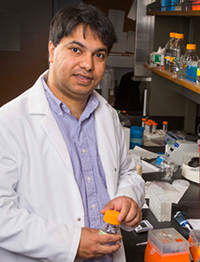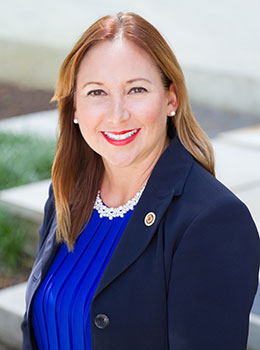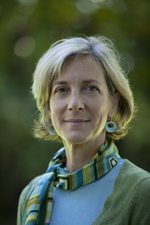
November 9, 2017
Somshuvra Mukhopadhyay, Ph.D.
Pharmacologist Somshuvra Mukhopadhyay, Ph.D., from the University of Texas at Austin, is working to understand the genetic and environmental factors that contribute to parkinsonism, which causes Parkinson’s disease-like movement problems. By providing important insights into the biological processes involved in the condition, Mukhopadhyay’s research might one day inform the development of new drugs that help people with parkinsonism.
October 26, 2017
Andrea Baccarelli, M.D., Ph.D.
NIEHS grantee Andrea Baccarelli, M.D., Ph.D., studies epigenetic changes, which affect the way genes are expressed without directly changing the genetic code in DNA. Baccarelli's career experiences have led him to become a pioneer in environmental health and epigenetics research. Furthermore, his research continues to provide a greater understanding on how epigenetic changes may be leveraged to prevent certain diseases following exposure to pollutants.
October 26, 2017
Mary Lou Guerinot, Ph.D.
Research by NIEHS grantee Mary Lou Guerinot, Ph.D., is answering important questions about how plants absorb metals from the soil. She is identifying plant genes responsible for uptake of toxic metals such as arsenic, as well as iron and other nutrients, with the goal of making rice and other edible plants safer and more nutritious.
October 18, 2017
Bruce Hammock, Ph.D.
Renowned scientist and NIEHS grantee Bruce Hammock, Ph.D., has made groundbreaking discoveries in biology and biochemistry that have implications for improving the health of both humans and the environment. Originally trained as an insect developmental biologist, Hammock has since expanded his research into developing safe therapeutics for humans and animals, as well as developing tools to monitor exposure to environmental contaminants.
October 18, 2017
Elizabeth Harman
Elizabeth Harman, a former career firefighter and paramedic in Fairfax City, VA, has a passion for protecting first responders from hazards while on the job. At age 16, Harman began volunteering in the field, eager to get engaged in her community and help people. Now, Harman is the assistant to the general president for the Grants Administration & Hazardous Materials Training Department at the International Association of Fire Fighters (IAFF).
September 28, 2017
Habibul Ahsan, M.D.
For the last 20 years, NIEHS grantee Habibul Ahsan, M.D., has been studying the role our environment plays in human disease. A physician by trade, Ahsan recalls a groundbreaking article in the New York Times that implicated arsenic-contaminated drinking water with skin diseases in Bangladesh and parts of India. Originally from Bangladesh himself, Ahsan became passionate about studying global environmental health.
September 20, 2017
Alexander (Alex) Isakov, M.D.
In 2014, NIEHS grantee Alexander Isakov, M.D., played an instrumental role in transporting and caring for two American aid workers who had been infected with Ebola virus disease, which is highly infectious and often fatal. Isakov worked with an interdisciplinary team at Emory to ensure that the Ebola virus did not spread, making certain that healthcare staff, visitors, and other patients were protected from contracting the disease. Due to the efforts of this team, both patients fully recovered.
July 12, 2017
Janine LaSalle, Ph.D.
Today, a definitive autism diagnosis typically isn’t possible until age 3. However, if children at high risk could be identified sooner, they might be eligible for early behavioral therapies that could improve their quality of life. Research conducted by NIEHS grantee Janine LaSalle, Ph.D., a professor at University of California, Davis, could one day make such early interventions possible.
July 10, 2017
Robert (Bob) O. Wright, M.D.
Pediatrician, medical toxicologist, and environmental epidemiologist Robert O. Wright, M.D., studies how children’s health is affected by the exposome. The exposome encompasses the totality of exposures to chemicals, diet, and social stressors from conception to death, and how such exposures impact human health during various life stages.
May 5, 2017
Brad A. Racette, M.D.
NIEHS grantee and neurologist Brad Racette, M.D., has long been interested in movement disorders, specifically Parkinson's disease (PD). His career has been largely influenced by personal experiences in the clinic, as well as in the field of epidemiological research.
April 13, 2017
Catherine Karr M.D., Ph.D.
Catherine Karr, M.D., Ph.D., was recently named as a recipient of the 2017 Presidential Early Career Award for Scientists and Engineers (PECASE) award, which is the highest honor given by the U.S. government to early career scientists and engineers. The award recognizes commitment to scientific leadership, public education, and community-engaged research. Karr was nominated by the U.S. Department of Health and Human Services for her community-engaged research approach focused on environmental allergens and children’s respiratory health in rural populations.
February 10, 2017
Lauren Aleksunes, Pharm.D., Ph.D., D.A.B.T.
During pregnancy, mother’s-to-be have heightened awareness and concern about their exposure to environmental chemicals and use of pharmaceutical drugs. Mounting evidence suggests pregnancy is a crucial window of susceptibility, presenting the possibility of lifelong impacts for expectant mothers, their children, and future generations.to Top


